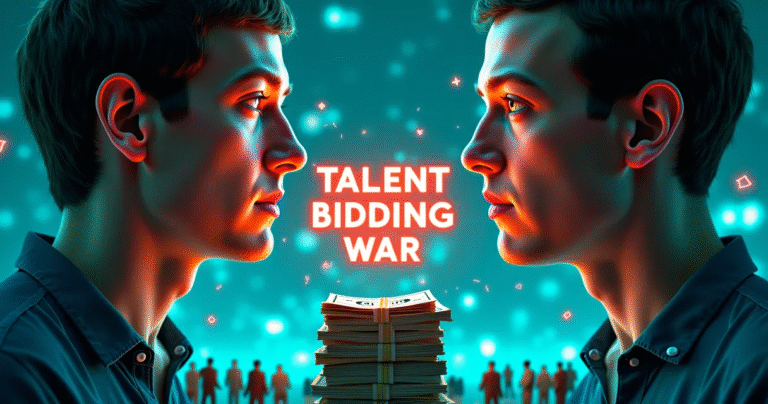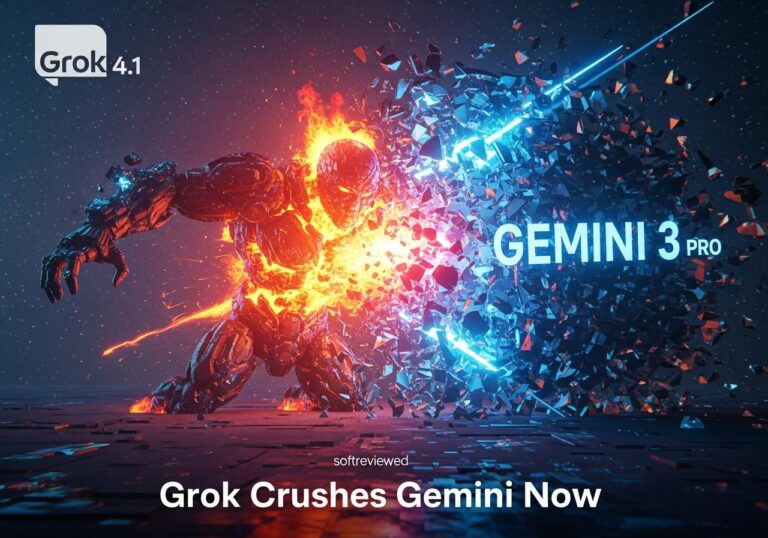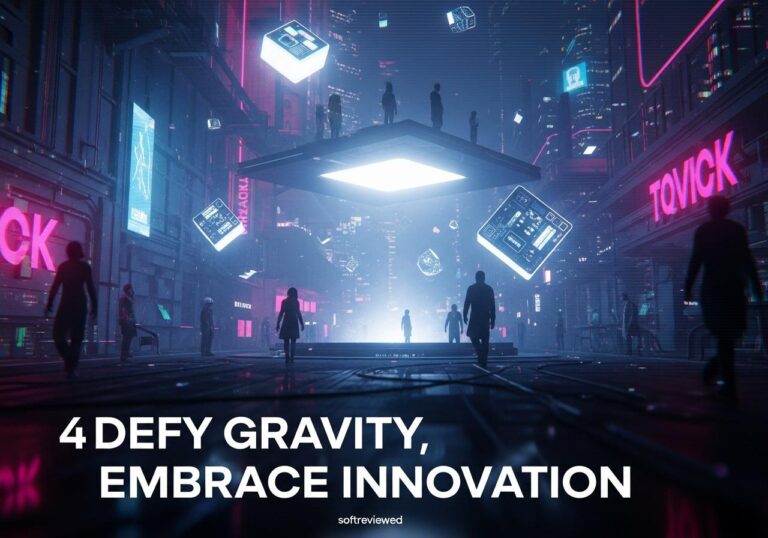The AI Talent War: Meta vs OpenAI
Inside the unprecedented battle for artificial intelligence talent shaping the future of tech
Meta Offering $100M+ Signing Bonuses
Major tech rivals are targeting elite AI researchers with unprecedented compensation packages, with Meta reportedly offering nine-figure signing bonuses to attract top talent from competitors.
Failed Recruitment: OpenAI Retains Top Talent
Despite aggressive financial offers, OpenAI CEO Sam Altman has confirmed that none of the company’s core team members accepted Meta’s lucrative recruitment attempts, demonstrating remarkable team loyalty.
Meta’s Aggressive AI Investment
Meta is doubling down on AI with a $15 billion stake in data-labeling firm ScaleAI and the formation of a new 50-person ‘Superintelligence’ team, signaling Mark Zuckerberg’s determination to lead in artificial intelligence.
Altman’s Counter-Narrative: Mission Over Money
OpenAI’s leadership emphasizes that their team values long-term vision and cultural alignment over immediate financial gain, suggesting that purpose and impact remain stronger motivators than compensation for top AI researchers.
Escalating Competition in AI Talent
The intense poaching wars between OpenAI, Meta, and Google highlight AI talent as a strategic priority, with companies willing to invest unprecedented resources to secure competitive advantages in this critical technology race.
Strategic Shifts in Industry Partnerships
Reports indicate that OpenAI and Google may reduce their reliance on ScaleAI following Meta’s acquisition, potentially reshaping the ecosystem of partnerships and alliances in the AI industry.
The fierce competition for top-tier artificial intelligence talent has reached a stunning new peak. In a candid conversation, OpenAI CEO Sam Altman alleged that Meta Platforms has been making "giant offers" to his employees, including signing bonuses reaching an eye-watering $100 million, in an aggressive bid to lure them away. This revelation, made on a podcast, pulls back the curtain on the high-stakes, behind-the-scenes battle among tech giants to assemble the teams they believe will unlock the future of AI.
This escalating AI talent war isn't just about corporate bragging rights; it's a strategic conflict where individual researchers are viewed as kingmakers, capable of tipping the scales in the race to build advanced AI and artificial general intelligence (AGI). Altman's claims suggest that Meta, under the direct guidance of Mark Zuckerberg, is willing to spend astronomical sums to bolster its ranks and catch up to competitors. But is cash alone enough to win the war for the world's brightest AI minds?
A "Crazy" Recruitment Strategy Revealed 😲
The allegations paint a picture of a recruitment frenzy that sounds more like professional sports than corporate hiring. The sheer scale of the reported offers underscores the value placed on elite AI researchers, who are now some of the most sought-after professionals on the planet.
What Did Sam Altman Say?
Speaking on the "Uncapped" podcast, hosted by his brother Jack Altman, Sam Altman didn't mince words. "They (Meta) started making giant offers to a lot of people on our team," he stated. "You know, like $100 million signing bonuses, more than that (in) compensation per year."
He described the situation as "crazy" but also expressed confidence in his team's loyalty. "I'm really happy that at least so far none of our best people have decided to take them up on that," Altman added, suggesting that OpenAI's mission-driven culture is proving more attractive than massive paychecks.
The Uncapped Podcast Bombshell
The choice of venue for this revelation—a podcast rather than a formal press release—allowed for a more personal and unfiltered take. Altman's comments quickly rippled through the tech world, highlighting a core tension in the industry: the struggle between open-source ideals, commercial competition, and the immense financial incentives now at play. Meta, for its part, has not yet publicly responded to the claims, leaving the tech community to digest the implications of such aggressive tactics.
Behind Meta's Aggressive Push for AI Dominance 🚀

Meta's reported recruitment drive isn't happening in a vacuum. The company, once a leader in open-source AI, is now perceived by some as playing catch-up to the likes of OpenAI and Google. This has seemingly prompted a strategic shift toward building a formidable, centralized AI research unit.
Building a "Superintelligence" Dream Team
Recent reports indicate that Meta CEO Mark Zuckerberg is personally spearheading an effort to create a new "superintelligence" group. The goal is to develop AI systems that can match or even surpass human cognitive abilities. To do this, you need the best talent, and Meta appears willing to pay a premium for it.
This initiative follows a series of strategic moves:
📌 Heavy Investment: Meta recently made a massive $14.3 billion investment in the data-labeling startup Scale AI.
📌 High-Profile Hires: The company also recruited Scale AI's CEO, Alexandr Wang, to join its new superintelligence team.
📌 Poaching from Rivals: Beyond OpenAI, Meta has reportedly been successful in poaching top engineers from other major players, including Google's DeepMind.
Mark Zuckerberg's Personal Involvement
Zuckerberg's direct involvement in recruiting sends a clear message: AI is Meta's top priority. By personally reaching out to researchers and offering massive compensation packages, he is leveraging his position to attract the talent he believes is essential for Meta's future. This hands-on approach signals a sense of urgency and a commitment to winning the AI race, no matter the cost.
More Than Just Money? Why Top Talent Might Be Saying No 🤔
While nine-figure offers are undeniably tempting, Altman's comments suggest that the world's leading AI researchers are motivated by more than just financial gain. The decision to stay or go often comes down to a complex interplay of mission, culture, and the belief that one's work will have a meaningful impact.
A Battle of Culture vs. Compensation
Altman theorized why OpenAI's top people might be turning down Meta's lucrative offers. He questioned the long-term effectiveness of building a team primarily through financial incentives. "The degree to which they're focusing on that and not the work and not the mission, I don't think that's going to set up a great culture," he remarked on the podcast.
He positioned OpenAI as a company with a clearer path and a better understanding of how to achieve AGI. "I think we understand a lot of things they don't," he added, framing the contest as one of vision versus pure financial muscle.
Altman's Take on Mission and Innovation
For many top researchers, the ultimate prize is not a bigger salary but the chance to be at the epicenter of a technological revolution. OpenAI has successfully cultivated an image as the leading force on the path to AGI. This powerful sense of mission can be a more compelling retention tool than any signing bonus.
As Altman put it, "I think that people sort of look at the two paths and say, alright, OpenAI's got a really good shot at actually delivering on super intelligence."
The High-Stakes Chess Game for AI Supremacy ♟️
The alleged poaching attempts are the latest move in an intricate chess game between a handful of companies vying for control over what could be the most transformative technology in human history.
A Seller's Market for Elite AI Minds
The demand for top AI talent far outstrips the supply, creating a "seller's market" where elite researchers can command unprecedented salaries and influence. Companies believe that a single, brilliant individual or a small, cohesive team can create breakthroughs that lead to market dominance, making almost any price tag seem justifiable.
Comparing the Titans: OpenAI vs. Meta
To better understand the dynamics, let's compare the two companies at the center of this story. While both are AI powerhouses, they represent different philosophies and strategies. For more details on OpenAI's offerings, you can explore the OpenAI API documentation.
| Feature | OpenAI | Meta |
|---|---|---|
| Primary Focus | Achieving Artificial General Intelligence (AGI) through large-scale models like GPT. | Integrating AI across its social media platforms (Facebook, Instagram) and building for the metaverse. |
| Stated Mission | To ensure AGI benefits all of humanity. | To connect people and build community through technology. |
| Primary AI Models | GPT-4, Sora, DALL-E 3 (Primarily closed-source) | Llama series (Historically open-source, though strategy may be shifting) |
| Reported Strategy | Attract talent with a focused, research-driven mission toward AGI. | Aggressively recruit top talent with massive financial packages to build a new "superintelligence" unit. |
Where This High-Stakes Rivalry Is Headed ➡️
The fierce competition between OpenAI and Meta is more than just corporate drama; it signals a new, more aggressive phase in the development of artificial intelligence. The outcomes of this talent war could shape the direction of AI for years to come.
The Ripple Effect on the AI Industry
This level of spending is likely to have significant consequences:
✅ Inflated Salaries: Compensation packages across the industry are likely to rise, making it harder for smaller companies and startups to compete for talent.
✅ Increased Secrecy: As the stakes get higher, companies may become less willing to share research, potentially slowing down the collaborative progress that has defined much of AI's history.
✅ Concentration of Power: The consolidation of top talent within a few mega-corporations could limit the diversity of approaches to AI development and concentrate immense power in the hands of a few.
Is This Sustainable?
The practice of offering nine-figure bonuses raises questions about sustainability. While tech giants have deep pockets, can this level of spending be maintained? Furthermore, if a company's culture becomes purely transactional, it risks losing the very passion and collaborative spirit that often drives genuine innovation. The long-term return on these massive investments in human capital remains to be seen.
Weighing the Claims and What Comes Next
Sam Altman's explosive claims have laid bare the ferocity of the AI talent war. While Meta has yet to confirm or deny the allegations, the story aligns with its publicly stated ambitions and the immense pressure to keep pace in the race for AI supremacy.
The central conflict—between mission-driven cultures and astronomically high financial incentives—will be a defining theme as the quest for superintelligence continues. Whether loyalty can be bought or must be earned is a question that extends far beyond AI, but in this field, the answer could determine which company builds the future. As this rivalry unfolds, one thing is certain: the price of genius has never been higher.







